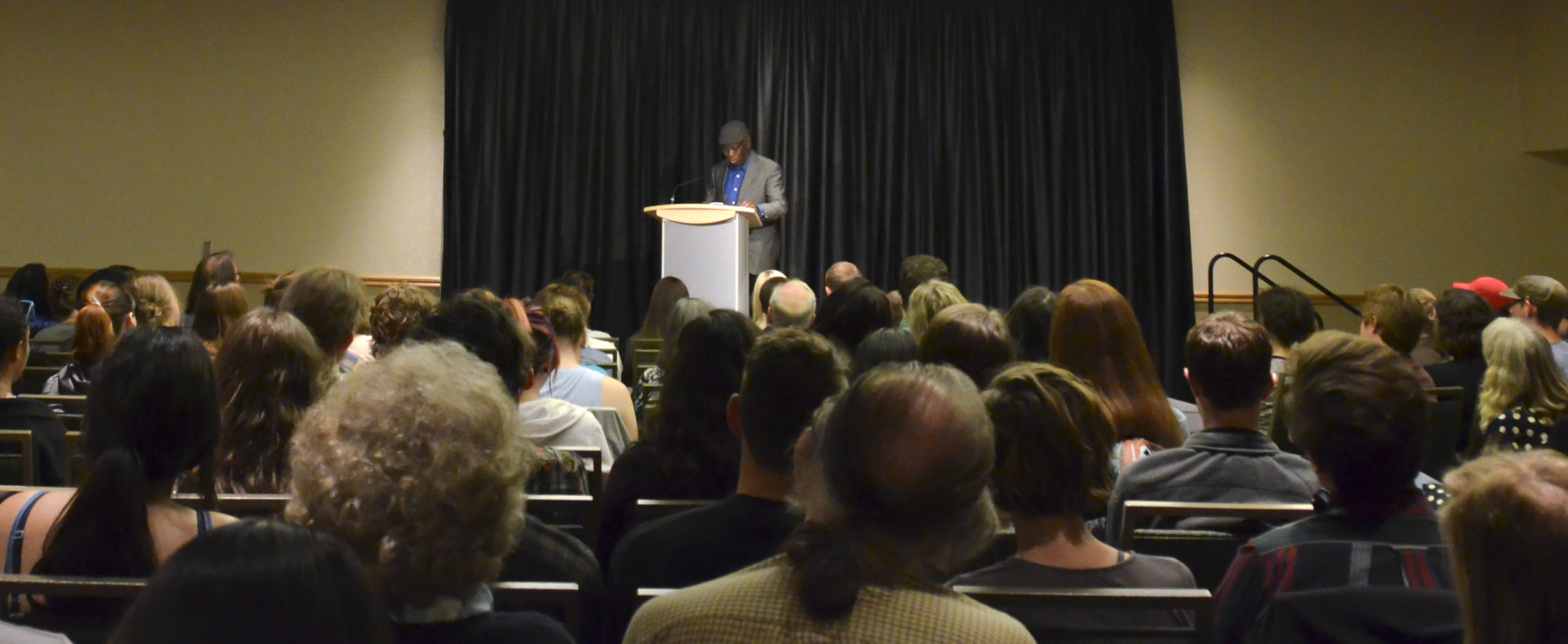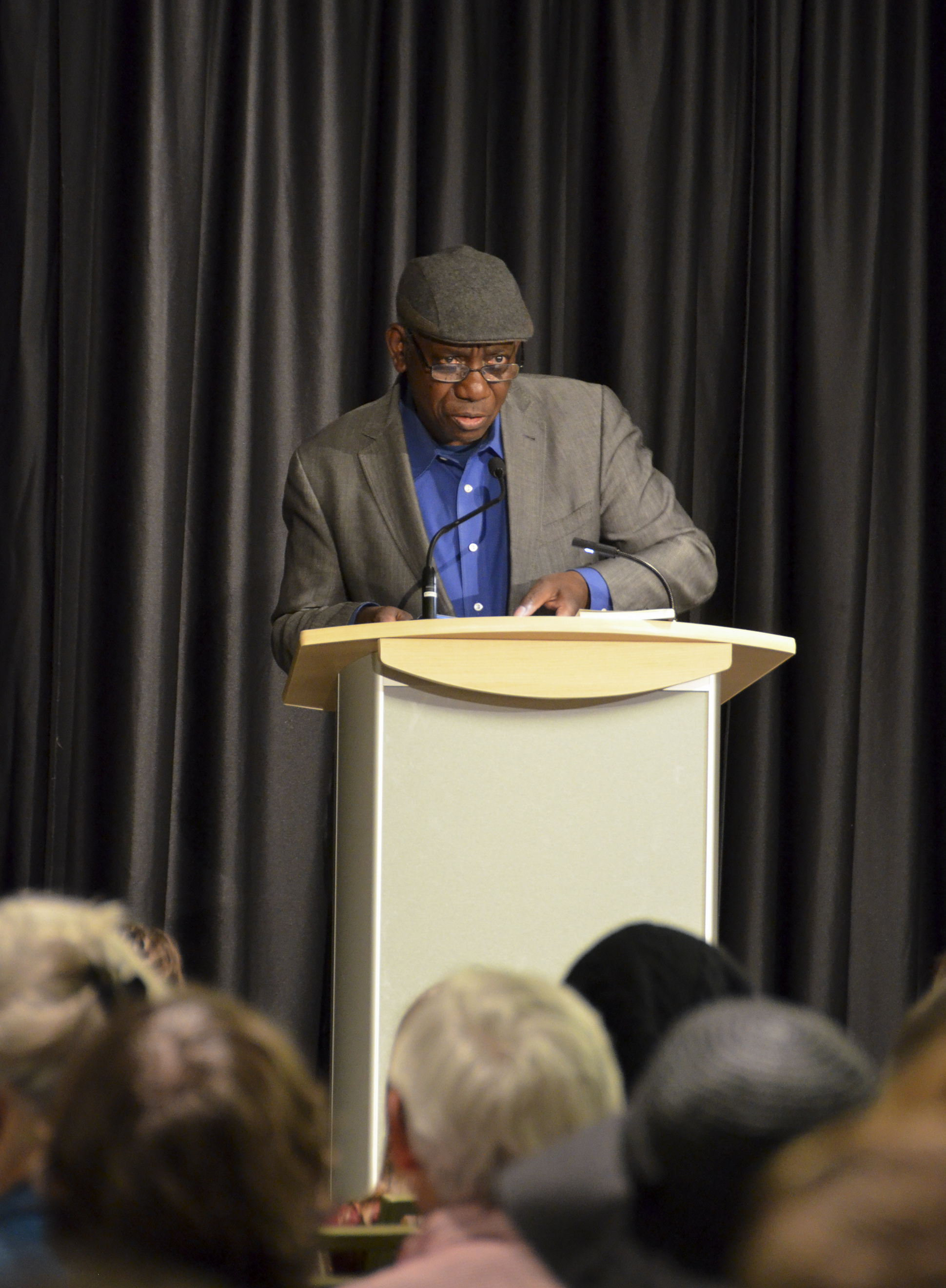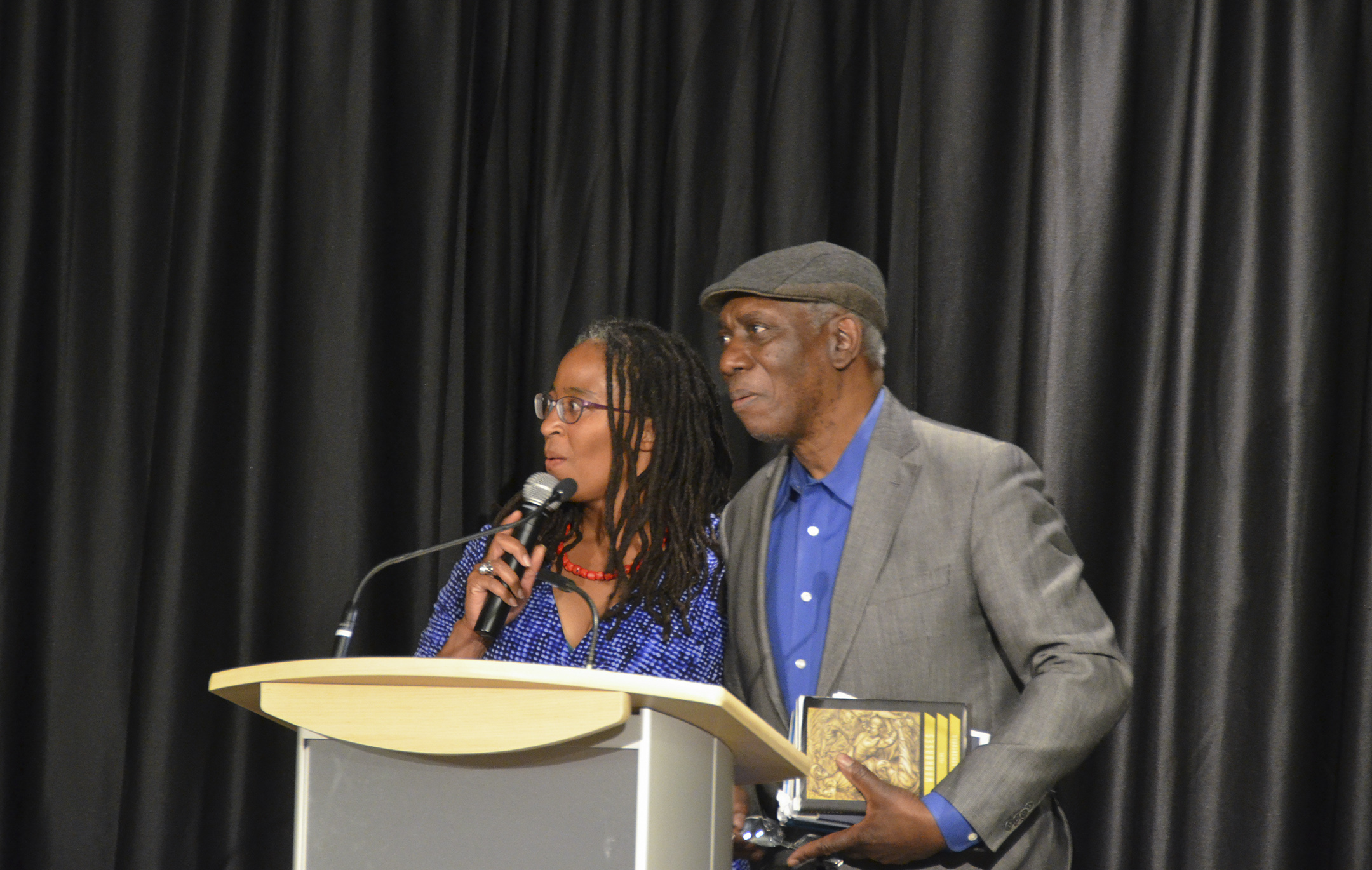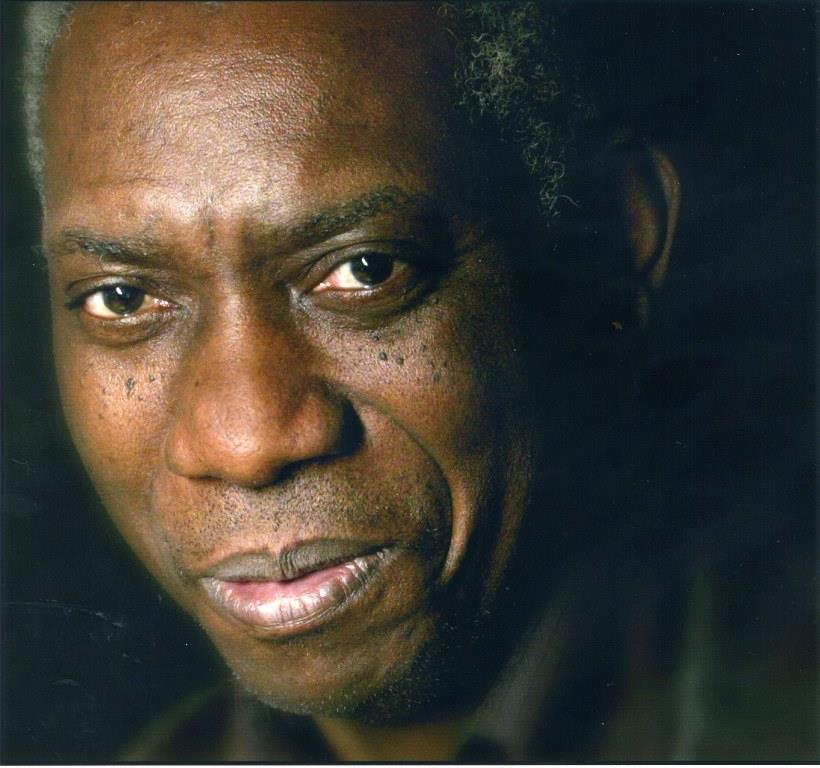
Yusef Komunyakaa is the latest recipient of the College of Liberal Arts Honor Alumnus Award. This honor is designated for graduates whose distinguished careers and service to the university, state, nation, or world bring honor to Colorado State University and to the recipient. Professor Emeritus Bill Tremblay, who has known Komunyakaa since he was a graduate student at CSU and was involved in nominating him for this award, says that "it was clear from the beginning he was very special."
Komunyakaa’s been called both a "jazz poet" and a "soldier poet." He rejects the "write what you know" model in favor of "write what you are willing to discover." His advice to newcomers, readers and writers of poetry is “Be inquisitive, and not just for the sake of information … but because I do think that it keeps us connected to who we are. Life is celebration and confrontation, the same as poetry.”
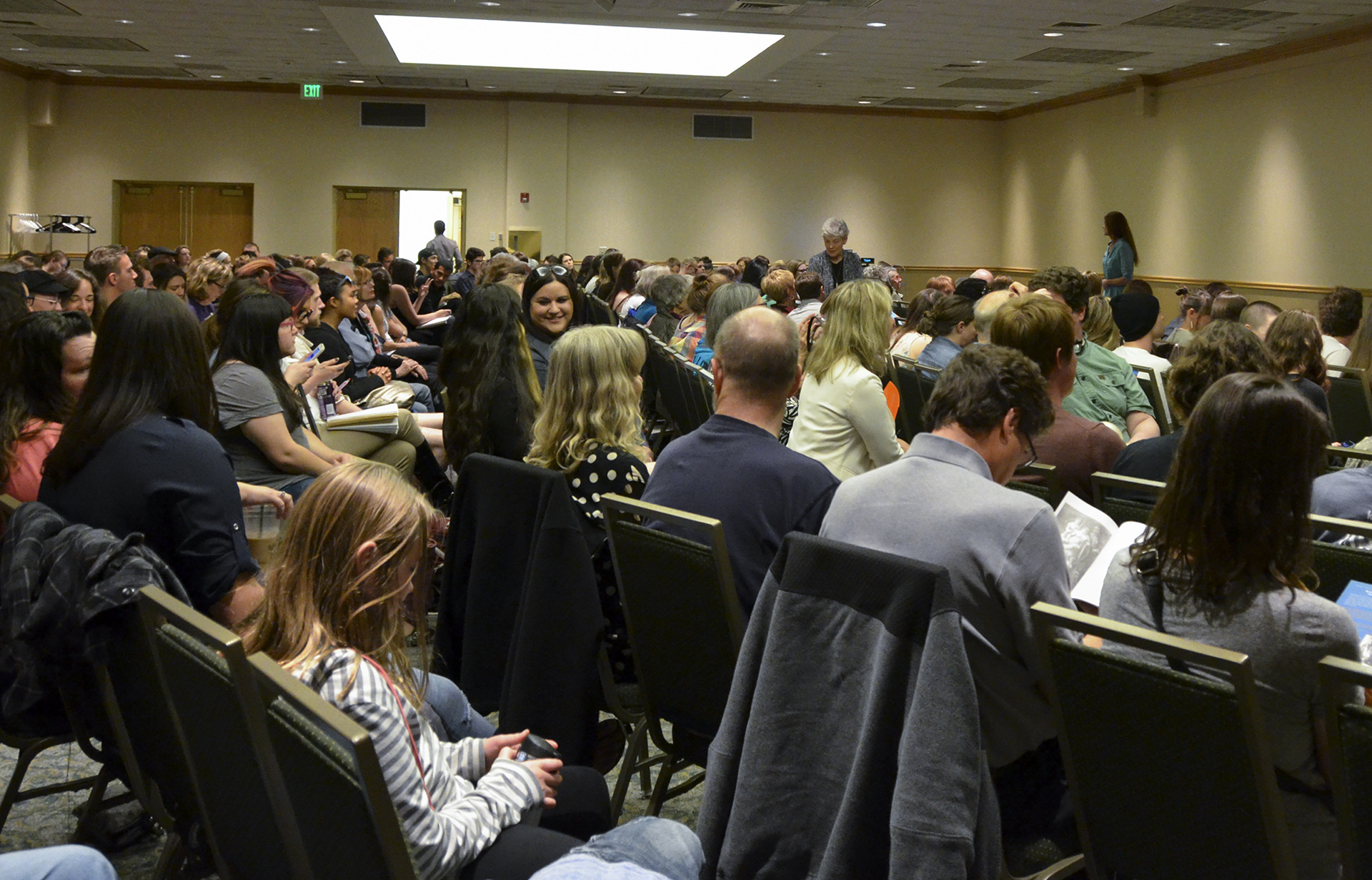
In his essay, "Shape and Final Equilibrium," Komunyakaa says, "I write about whatever captures my imagination, anything that touches me with significance: philosophy, psychology, nature, culture, folklore, history, sex, science, concerns from the gut-level to the arcane. And yes, jazz as a necessary balm moves through all these aspects of our daily lives."
The North Ballroom of the Lory Student Center was full the night of April 21, with a large crowd eagerly awaiting Komunyakaa.
Professor Camille Dungy opened the event by sharing that Komunyakaa had written the blurb for her first book, and that knowing Komunyakaa had studied at CSU was part of what drew her here.
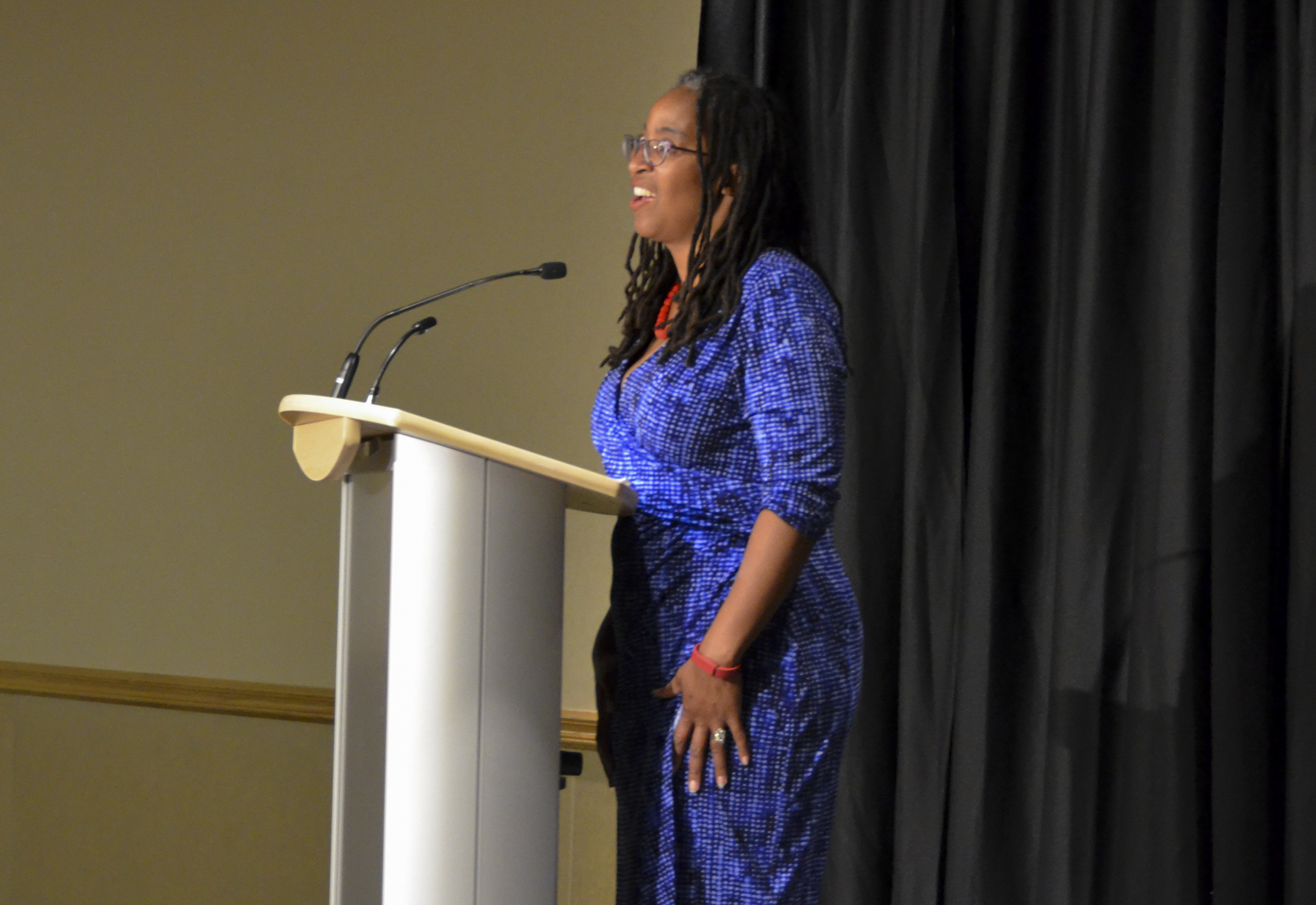
When Professor Emeritus Bill Tremblay took the stage, he talked about the two years Komunyakaa had studied with him at CSU, said how happy he was to welcome him back to Colorado after so long, and shared a poem Komunyakaa had written about dealing with rejection, “Dear Poetry Editor.” Finally, Department of English graduate student Cole Konopka delivered his introduction, saying, “I’m so happy to see so many people here for a poetry reading.”
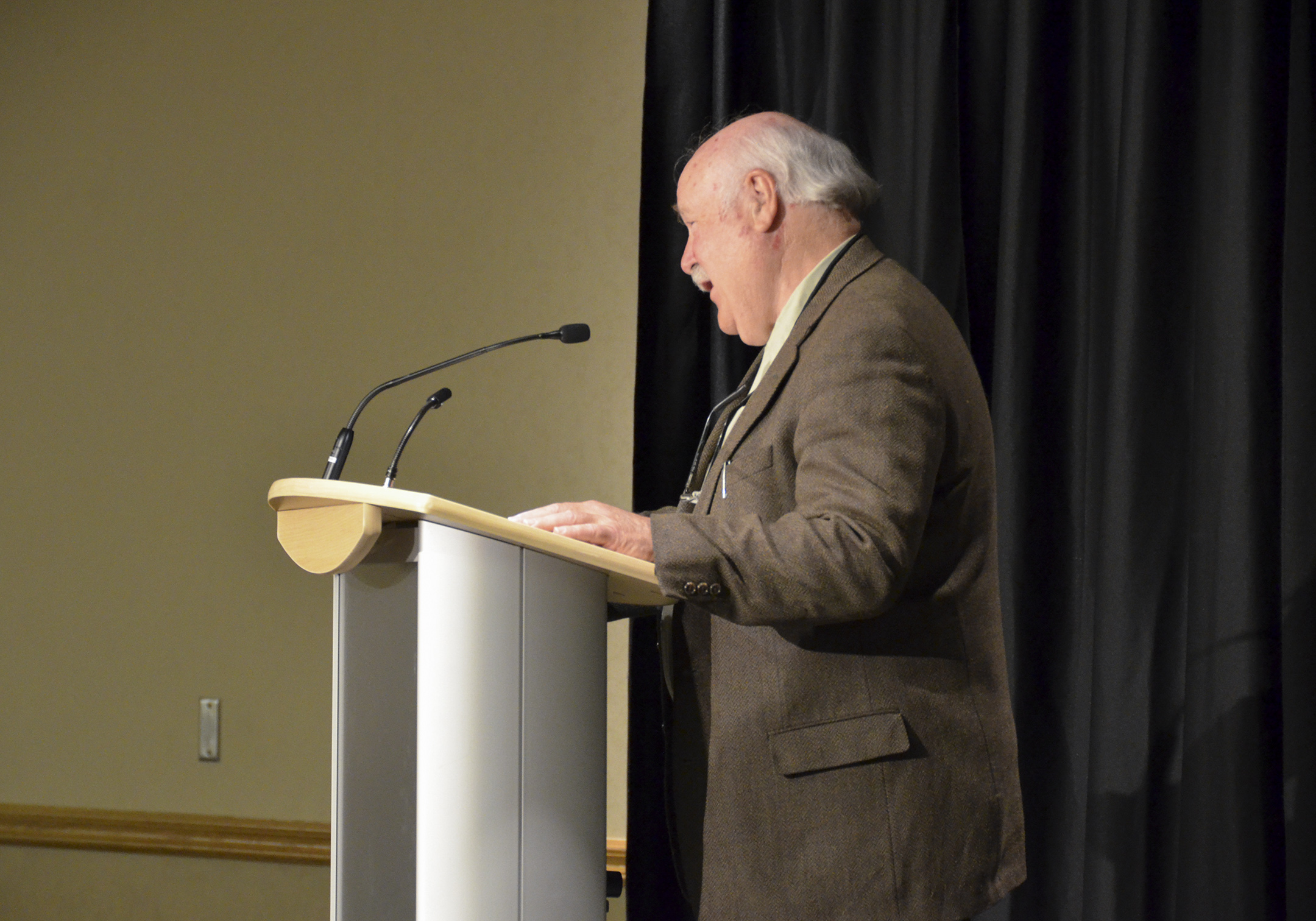
Finally, Komunyakaa took the stage. He is a Pulitzer Prize winning poet, current State Poet of New York, and was recently elected to the American Academy of Arts and Sciences. But what first strikes you about him isn’t the aloofness you might expect from one so notable and distinguished; rather, he is unassuming and humble. He exudes a particular gentle humanity, a great quiet and sense of delight and curiosity that winds its way into the music of his poetry. He is clearly someone who knows the pain of life, understands its brutality, and yet there is a kindness in his manner.
After he set his books down on the podium, Komunyakaa smiled out at the audience and said, “I don't think I would be a poet without being in Colorado. I saw the mountains and the sky, and couldn't back down.” From there, he started to read, and a hush fell over the audience as they settled in to listen.
First he read “When Eyes Are on Me,” a poem with beautiful lines like “I know more than a lion should know” and “I’m a riddle to be unraveled,” and as he read, it was hard to not imagine him as the proud lion from the poem, to not hear the double meaning of the lines, to not see the metaphor.

Next he read “Requiem,” a poem written after Hurricane Katrina at the request of Paul Reyes, the editor of Oxford American, about an event that had left him “speechless and humbled.” The poem was made more powerful on this night by the fact that he recited it from heart. His eyes never left the audience as he spoke, line after line, just as he’d hoped when he first wrote the poem – “to capture a continuous motion, looping and winding, dredging up and letting go.”
There’s most definitely a particular music to Komunyakaa’s poetry, and a magic to listening to him read it. He’s said that as he writes, he reads everything aloud. “Listening is the most important thing in the creative arts, but also in life,” and in his revision process, “I’m listening for the music as opposed to the ideas.”
Next he read one of my favorite Komunyakaa poems, “Ode to the Maggot.” When he finished, he said “I supposed that’s as close as we get to the blues tonight … maybe not.” He went on to read a series of poems about his experiences in Vietnam – “Camouflaging the Chimera” (whose final line, “as a world revolved under each man’s eyelid,” caused some in the audience to gasp), the devastating “You and I Are Disappearing,” “Tu Do Street,” and “Grenade,” a poem in honor of the black men who threw themselves on live grenades during Vietnam, about which he said “I’m still trying to understand that gesture” and “I tried [in this poem] to capture something that I couldn’t talk about.”
I wrote out the titles of the rest of the poems he read that night, all of them recorded in my tiny notebook like the set list of a musical performance, along with scribbled notes of my favorite lines. Komunyakaa also shared some of a work in progress, “this strange character talking to his dog,” something he said he wasn’t even sure where it had come from, but that “poetry comes from everywhere.”
Poetry is alchemy, compression and expansion, celebration and confrontation, real experience turned into something magic. Komunyakaa has witnessed the cruelty of the American South during the Civil Rights era as well as the violence of the Vietnam War, loss both personal and shared, and through his poetry he transforms those events and experiences into something we can hear and hold – things we might otherwise turn away from, find too difficult to look at directly.
“Poetry is a kind of distilled insinuation," he said. "It’s a way of expanding and talking around an idea or a question. Sometimes, more actually gets said through such a technique than a full frontal assault.”
He doesn’t whitewash the truth or make it safe, but he does translate it into a music that we can understand. By way of Komunyakaa’s poetry, we can know what it means to be human in the midst of brutality without losing our sense of wonder, our appreciation for the surprises, our delight at discovery, or our awareness of grace and mercy. With his poetry, he encourages us to be curious, to engage in celebration and confrontation.
“We have to ask those questions that make us laugh, that make us squint into the darkness,” he said.
As Bill Tremblay so elegantly put it, “His voice is the voice that tells you what the world looks like to the soul.” I feel incredibly honored to be in a lineage of alumni that includes someone like Yusef Komunyakaa, and so grateful to have been in that room that night to witness the music and the magic of his words.

